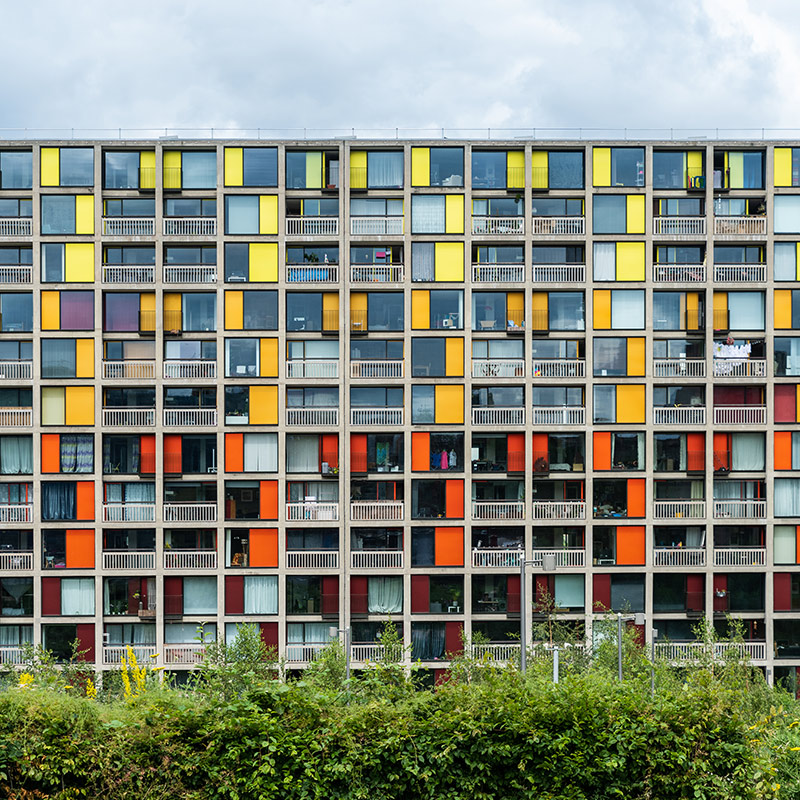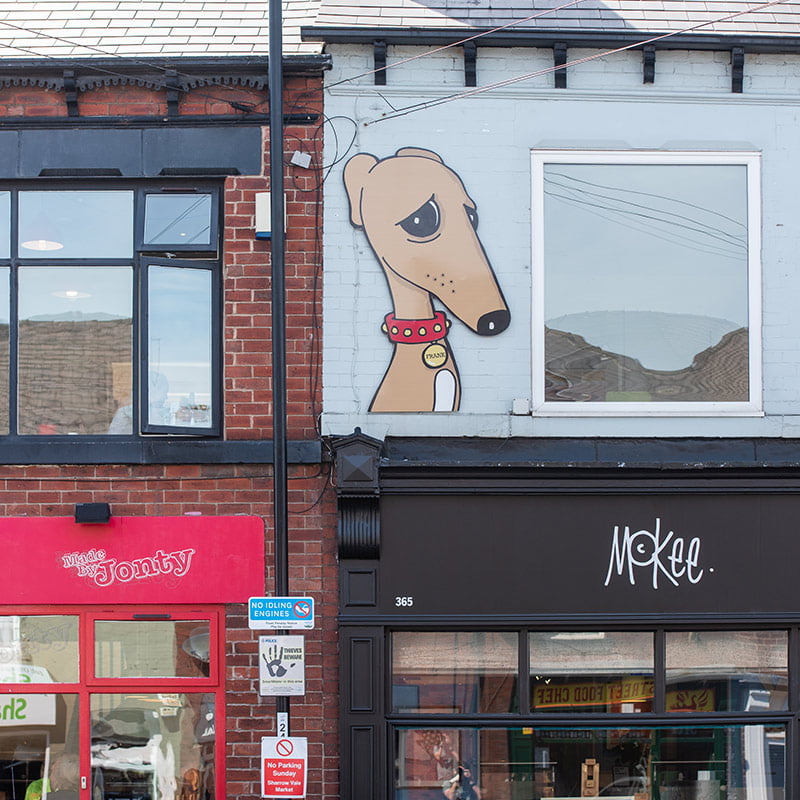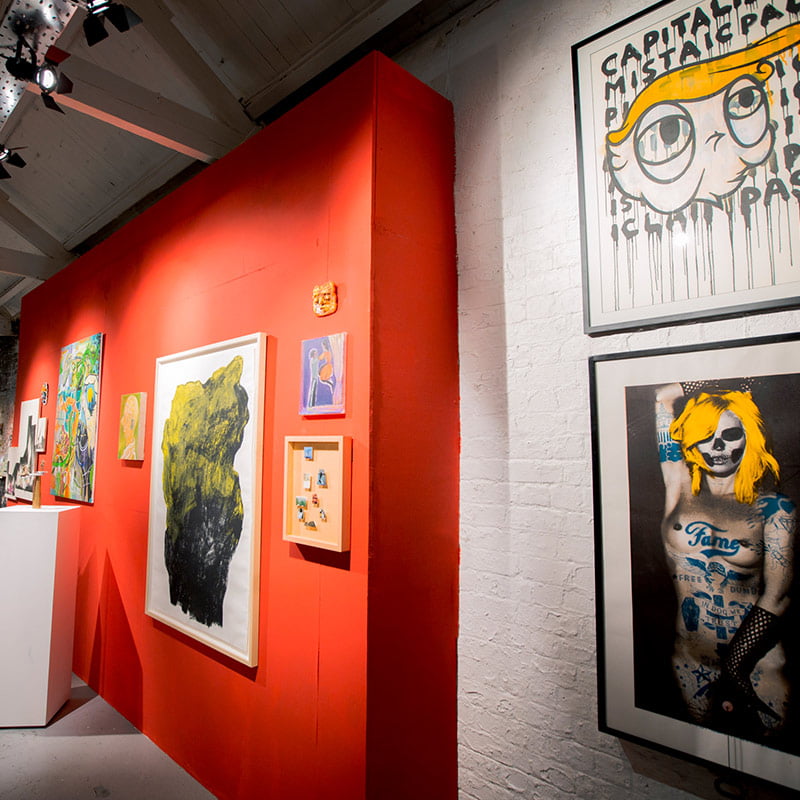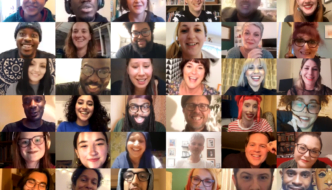
Source: Sheffield Culture Hub
The opportunity to interview Kathryn (Kat) Hall for this feature on the Sheffield Culture Hub brought that city right back into my thoughts again. I studied there as an undergraduate in the 80s and recently got my doctoral degree from Sheffield Hallam. This fine place is always, to me, a cool mix between city and town, urban and countryside, edging into the Peak District, nestling in the 7 Hills, steeped in memories of steel and coal. Both ironically self-aware and confidently dismissive of the self-consciously trendy, Sheffield occupies a particular place in the northern cultural scene.
Sheffield Culture Hub (SCH) is “a collective of arts and culture festivals, venues and organisations dedicated to keeping culture open online and helping the arts community stay strong in Sheffield during lockdown.” It’s a collaborative, organically growing venture involving The University of Sheffield, Welcome to Sheffield, Sheffield Culture Consortium and Sheffield City Council. I spoke to Kat just before the second lockdown. Kat works for Our Favourite Places – “the Sheffield culture guide written by in-the-know locals”- which can be accessed by clicking a link on the SCH website (The Hub). This partnership, she explained, keeps “our city’s vibrant culture accessible to as many people as possible”.
SHC, she says, is “a platform aimed at keeping culture open online during lockdown. It’s about helping the arts community stay strong and signposting audiences to where they can continue to enjoy the city’s festivals, venues and organisations from home”. A response to the first lockdown, it ensured the transition of art and culture programmes from in person to online. At first it was the big guns that were represented, those that were part of the culture consortium – “a network consisting of some of the city’s largest theatres, galleries, museums, festivals and independent cinemas as well as its two universities”. It grew quickly to include a wide and varied range of online activity emanating from an eclectic range of Sheffield-based arts and culture organisations “with an open invitation for organisations to get in touch if they’d like to be featured for free.”
These cultural happenings and opportunities are brought together on the Hub website, a landing page that then links out to the programmes of online activity hosted on OFP. It’s vibrant, well set out and easy to navigate. It speaks directly to the viewer/reader and tells us what we want to know, what we need to know and often what we had no idea there actually was to know. Launched with Arts Council funding in 2013, it features guides on where to go in Sheffield, including a street art trail, a tour of the city’s heritage highlights, and articles on its museums, theatres and galleries – ‘an introduction to some of the creative folk who call Sheffield home’.

Source: Sheffield Culture Hub
In terms of what you can find on the website, there really is an embarrassment of riches. Some examples are Cupola: ‘bringing contemporary art to Hillsborough since 1991’ – now hosting it online ‘with video interviews and insights; and there’s a shout out for Sheffield Theatres offering ‘drama in your home with digital resources from the team at the Crucible and Lyceum’; Utopia Theatre Creative Hub – over 40 African theatre professionals – informs us of ‘free online workshops and masterclasses to people of African origin’; while Andro and Eve who create ‘joyful spaces for the LGBTQ+ community since 2016’ – give us an interview with their founder and director as well as opportunities to find out more about what they do and intend to do, post lockdown. Jazz events, children’s activities, debating societies contemporary art, techno and the wonderful Leadmill where I danced and drank for what seemed like 3 full years as a student are all there on the website, telling their stories, making their plans and reminding us of their continued resilience. These are joined up conversations about joined up organisations.
I asked Kat specifically about Our Favourite Places. “Local design studio Eleven created OFP in 2010 as an independent love letter to Sheffield, originally in the form of a guidebook. The aim was to let others in on what makes the city special, bring perceptions of Sheffield up to date, and encourage people to visit. Now it’s an online culture guide with a team of freelance writers and photographers, a guidebook, a series of short films, prints, tours, postcards, and events including the annual Photomarathon Sheffield and the Sheffield Modern architecture weekender.”
It provides a home for less established organisations’ online content, “creating new pages for their online programmes and embedding live streams, videos and podcasts.” There’s an invitation to learn more about the Change the World Collective – poets from DRC, Ethiopia, Guyana, Ivory Coast, Kenya Pakistan and the UK – and later we’re informed that one of Sheffield’s best pubs is actually in its railway station (I can vouch for this). You can sign up for a weekly culture round-up. The interface is welcoming and yes, I’m going to use the word, friendly.

Source: Sheffield Culture Hub
What strikes you is the tone. I don’t want to fetishise Sheffield – I hate generalisations about Northern cities – but I’ve always felt a vibe in that place. Former Sheffield mayor Magid Magid brought many innovations to the City and one was the creation in 2018 of Sheffield’s first poet laureate, Otis Mensah, so it’s not surprising the Sheffield Culture Hub is able to fill its space with a wide range of opportunities, activities and calls to action as well as numerous opportunities to ‘contribute, share and promote your own cultural happenings’. Mensah is featured in OFPs Meet the Locals section along with choirs, places to explore tech, mentors, artists, film makers, musicians, DJs, graffiti artists and local breweries.
I asked Kat what the interaction was between website content and viewer? In these strange days of partial isolation and dislocation it’s all too easy to see communication of information as a one-way street. “It’s a mix,” she replies. “Longer-established venues and organisations stay in touch with us regularly to keep us in the loop about their plans so that we can feature their programmes on OFP. We commission Meet the Locals interviews with artists and makers to coincide their publication with a new show, exhibition or event that they’re involved in.” Pre-pandemic, promotion was via offline and online content, to reach as wide a demographic as possible. Sheffield City Council, the University of Sheffield and OFP have also promoted SCH through their social media and news channels. Pre-covid, website stats were an average 15,000 monthly users and 40,000 monthly page views. Again, joined up thinking to promote arts, culture and community in difficult times.
However, “The pandemic forced us to shift our focus at OFP” Kat goes on to say. “We adapted our What’s On calendar to focus on promoting virtual events and activities. Access to culture is important, and we wanted to continue to provide a platform for Sheffield’s arts and culture community at a time of lockdown and social distancing. We’re working on plans for what form we take when things return to ‘normal’, taking the opportunity to consider how we can reset and refresh our mission and ways of working to better serve the city and represent its arts and culture community in the wake of 2020.”
The future may be uncertain but arts and culture in Sheffield are not. They are well served by this website, by these organisations and by their ideals, their ideas and their future-facing plans. We hope to occupy these places for real, soon, but meanwhile the streets containing our entertainment, diversion, activism and community are online. Make no mistake though. To quote the Sheffield singer songwriter Richard Hawley:
“No nothing ever mattered more than not doubting
That tonight the streets are ours.”




Comments